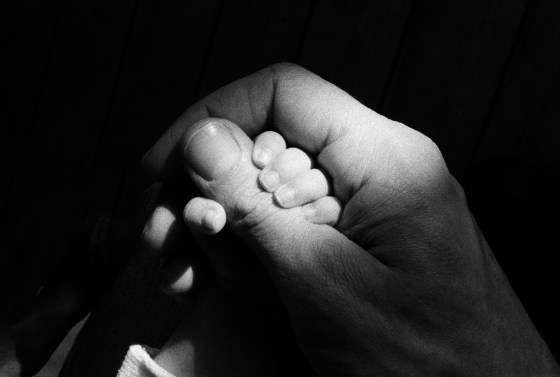"What will he be?”
My mother-in-law’s question on the banks of the Hillsborough River was shrouded in innocence like the Spanish moss hanging from the cypress trees. The eight-week ultrasound had shown a healthily developing fetus, rapid poomp-poomppoomp-poomppoomp-poomp heartbeat strong, but no clear gender in the black and white mass.
Still, we’d conceived this second child on our first try and the morning sickness was much worse than with our daughter, apocryphal signs I interpreted to indicate male.
“A boy,” I said to my mother-in-law. Her son and I were visiting from Brooklyn. Every now and then my brother-in-law pointed out another flat snout floating in the tar-blackened water. Even when the gators swam right in front of me, I never saw them on my own.
“But what will he be?” she asked again and this time I discerned the emphasis. “You’re from Trinidad and Grey (my husband) is white so will he be African-American or something else?”
At the time, early October 2008, Obama fever had swept at least a little more than half the nation. In exactly one month he would be elected the first African American president of the United States. Florida’s denial of a political truth had trumped before, but history seemed about to be made. Obama’s own mother had been white and his father a black African. Our unborn son could realistically aspire to be president.
Or, he could be a craftsman. We had settled on Mason, a pre-Kardashian, lapidarian edged, two syllable jab. My husband had recently lost his magazine production job in the publishing implosion. I was trying to complete a flighty first novel before the baby came.
“But what will he be?” she asked again and this time I discerned the emphasis. “You’re from Trinidad and Grey is white so will he be African-American or something else?”
On many nights I had lain in bed made uncomfortable by my changing body and thought it’d be great if our son decided to be an auto-mechanic or a butcher or a farmer. My late father, Theophilus Adolphus Brown, had been a pipe fitter. This baby didn’t have to want to be president of the US. It was okay to learn and practice a trade.
For the middle name we’d chosen Thomas, a paternal family name scattered throughout my husband’s line. Lore holds that his grandfather, the first Thomas born in the 20th century, walked barefoot out the Arkansas woods and settled his family in Conroe, Texas. Everyone agrees it might have taken him a minute to acclimate himself to my presence had he lived long enough to meet me.
The Thomas that was my husband’s father divorced his mother when he was two. He saw his dad during holidays and summered in Texas with a dozen cousins and doting grandparents. In his mid-twenties my husband helped nurse his dying father, a bond at the end to compensate for his early absence. My husband’s older brother Thomas, who’d felt their father’s absence keenly, had stepped up at nine as the man of the house. Too wounded to honor the man who had left him, he named his firstborn Manuel.
I have no idea what my son is going to be. Currently, he likes to dress up and draw. He has my nose, his father’s mouth, and Dante DeBlasio’s afro. He and his older sister say they’re half-Trini/half-dad.
Our Thomas is now almost six. He, like his sister, is unreservedly loved by his grandmother, but in her archaic innocence, stubbornly Southern in a shifting world, even she qualified his birthright with the assumption he could pass as “something else.” Surely not white, but something other than African American.
I have no idea what my son is going to be.
Currently, he likes to dress up and draw. He has my nose, his father’s mouth, and Dante DeBlasio’s afro. He and his older sister say they’re half-Trini/half-dad.
They share genes and history with the prior Thomases but our children, like our president, are African American—bloodless kin to an inherited legacy I wouldn’t any more refuse than if an unknown relative bequeathed me a Brooklyn brownstone.

